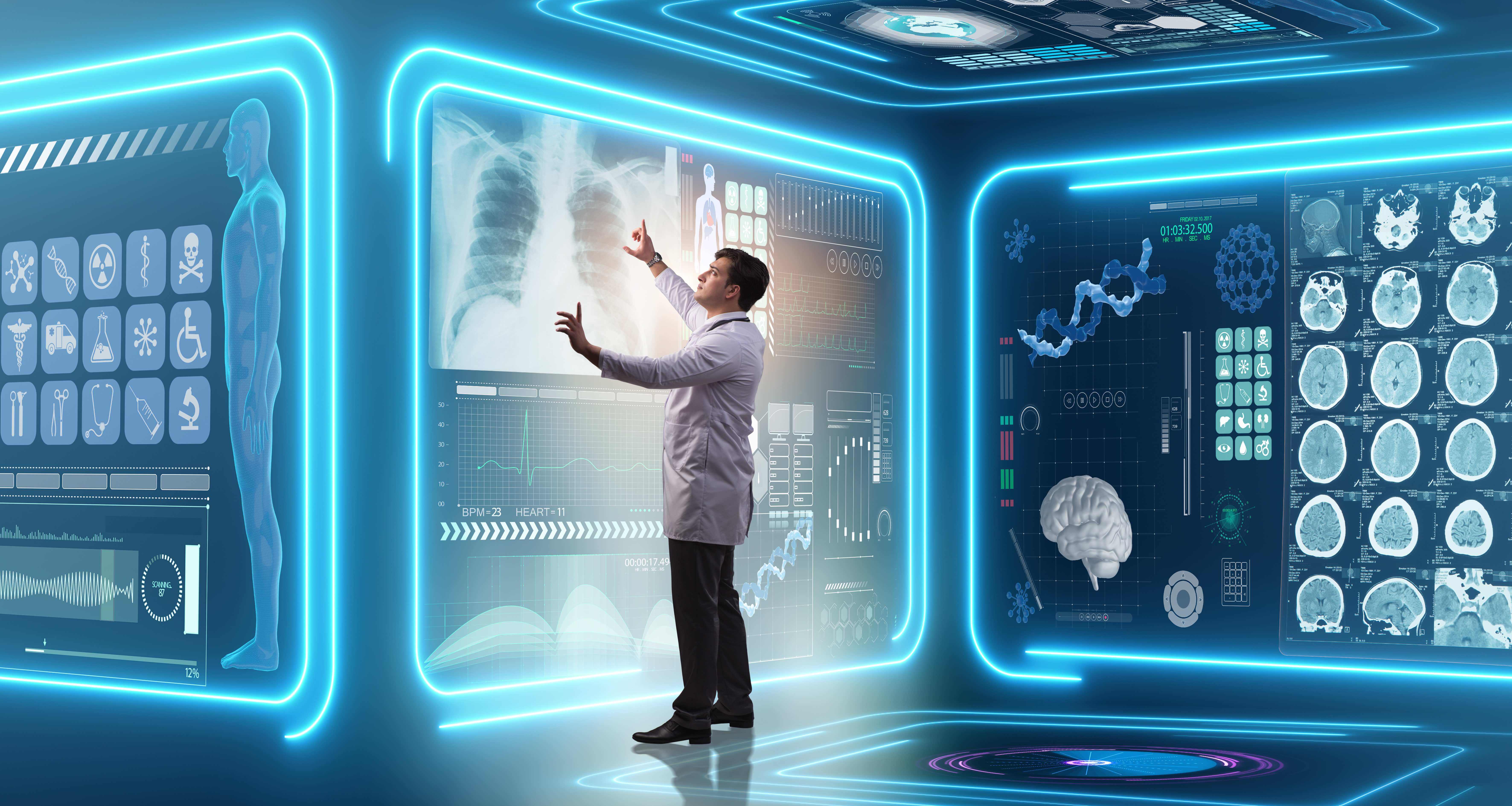
AI’s Impact on the Future of Healthcare: Unlocking Precision and AccessibilityAI’s Impact on the Future of Healthcare: Unlocking Precision and Accessibility Artificial intelligence (AI) is rapidly transforming healthcare, promising to revolutionize the way we diagnose, treat, and prevent diseases. By leveraging vast amounts of data, advanced algorithms, and computational power, AI is unlocking unprecedented possibilities for improving patient care. Personalized Medicine: AI enables healthcare providers to tailor treatments to individual patients’ unique characteristics. Powerful algorithms analyze genetic, medical, and lifestyle data to identify patterns and predict disease risks, allowing for personalized care plans and early intervention. Precision Diagnosis: AI-powered imaging and analysis systems can improve diagnostic accuracy by detecting subtle patterns and anomalies that are often missed by human eyes. This leads to faster and more precise diagnoses, reducing diagnostic errors and delays in treatment. Accessibility to Care: AI-powered technologies, such as telemedicine and virtual assistants, provide remote and accessible healthcare services to underserved communities and those with limited mobility. These tools bridge the gap in access to healthcare, particularly in rural or remote areas. Drug Discovery and Development: AI accelerates drug discovery by analyzing large datasets of genetic, molecular, and clinical data. Algorithms predict drug interactions, identify potential candidates, and simulate clinical trials, streamlining the drug development process and reducing costs. Chronic Disease Management: AI-powered devices and applications monitor patients’ health in real-time, providing early warning signs of disease exacerbations. Personalized recommendations for lifestyle modifications, medication adherence, and disease management help prevent complications and improve quality of life. Challenges and Considerations: While AI has immense potential, there are challenges that need to be addressed: * Data Privacy and Security: AI systems require access to vast amounts of patient data, raising concerns about data breaches and privacy violations. * Bias and Fairness: Algorithms can perpetuate biases present in training data, leading to unfair or inaccurate outcomes. * Interpretability and Explainability: The complex nature of AI models can make it difficult to understand the rationale behind their decisions, which is crucial for healthcare providers. Conclusion: AI is poised to reshape healthcare in profound ways. By enabling precision medicine, enhancing accessibility, and accelerating innovation, AI has the potential to improve patient outcomes, reduce costs, and empower patients to take an active role in their health. As we continue to develop and harness AI’s capabilities, it is essential to address ethical challenges and ensure that these technologies are used responsibly and equitably to unlock the full potential of healthcare in the future.
Posted inNews